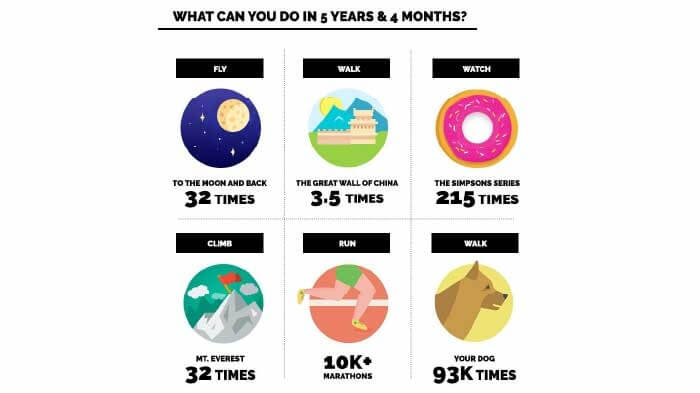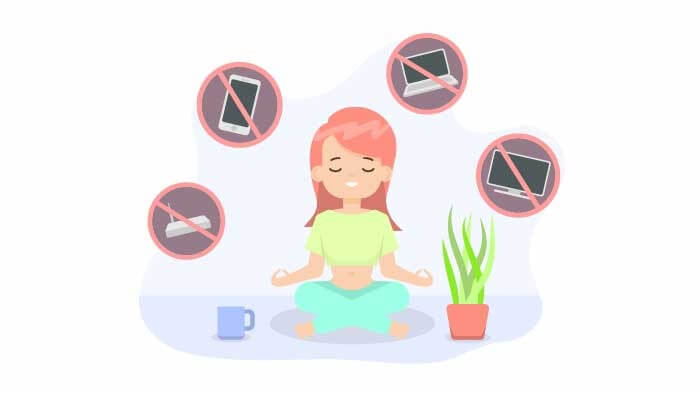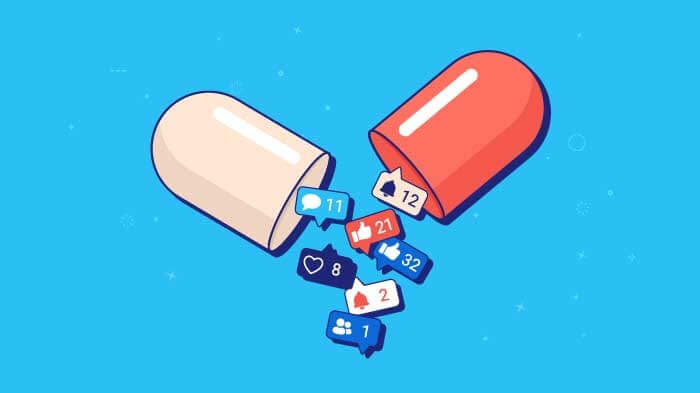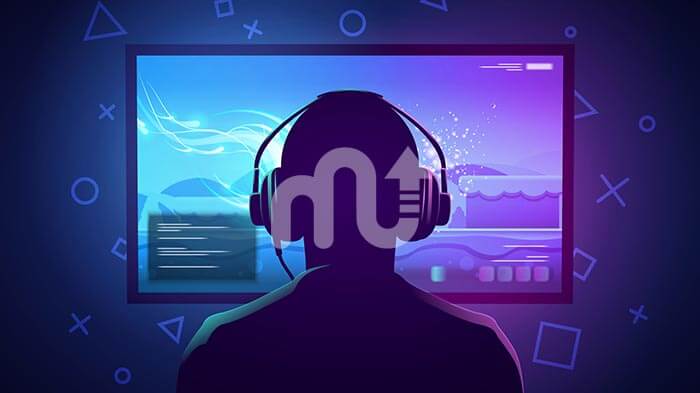Are You Addicted to Social Media? Is Social Media Detox Really Helping?
Over the past years, social media has been the most common use of technology. It is trendy among children and millennials. However, the ease of access and its widespread nature may cause serious problems such as social media addiction in the long term.

What Is Social Media Addiction?
As the name implies, social media addiction is a behavioral addiction characterized by people’s excessive use of social media.
This is driven by an uncontrollable urge to log on to or use social media, spending so much time and effort that it negatively affects other aspects of a person’s life. And unfortunately, it is ubiquitous among children and young adults, in other words, generation z.
💡️ Social media addiction statistics show that millions of adults suffer because of their social media addiction every year, we cannot say that protecting children against social media addiction is manageable.
However, some great apps like MentalUP protect kids against the compulsive use of technology, social media addiction, and even harmful content and ads.
MentalUP provides more than 150+ games that are both educational and entertaining. Thanks to its game-like nature, your children will have fun while developing many skills and enhancing their intelligence in various aspects.
Plus, you can set the screen time and track their progress and compare it with their peers. 📲️ 📊️
Social Media Addiction Statistics and Facts
Here are some of the social media addiction facts that you may want to know:
- An average person spends nearly 2 hours a day on these platforms. That sums up to 5 years and 4 months of his/her lifetime.

- Teens addicted to social media can spend up to 9 hours a day on it.
- Teens who spend more than 5 hours a day on social platforms are twice more likely to suffer from depression.
- Children start to use social platforms at the age of eight.
- 210+ million people worldwide are affected by the internet and social media addiction.
- Every month, 1 billion people use Instagram.
- As of 2020, 49% of the world’s population is on social media.
- There are 3.8 billion active social media users.
- 1 of 3 divorces is caused by social media.
- 4 in 10 young adults have insufficient sleep caused by social media addiction.
Social Media Addiction Symptoms
Here are some of the social media addiction symptoms and the negative effects of being addicted to social media that can help you evaluate your or your children’s link between social media and addiction.

Checking social media first thing in the morning and the last thing at night
If your first instinct when you wake up is to check your phone, and you constantly repeat this habit throughout the day, you may have social media addiction.
Loss of interest and lack of committing to responsibilities
People addicted to social media tend to avoid their responsibilities at school, home or work. These kinds of symptoms are a reason for concern.
Poor real-life communication skills
One of the effects of addiction to social media is being unable to communicate with others in real life. It allows people to construct an online personality that can be hard to let go of.
People who cling to these personalities can’t adapt to real-life communication. Apart from building a second personality, adults and young adults addicted to social media will constantly check their accounts, even during a conversation in real life, which will result in loss of interest and focus in the talk.
⚠️ Social media addiction can cause many concerns among parents. Social media addiction facts show that parents who experience difficulties communicating with their children or complain that their children avoid their responsibilities search for alternatives to distract them from social media.
MentalUP can be used as a fun distraction. At the same time, it helps promote your children’s cognitive, mental, and social skills, and it improves concentration and learning skills with entertaining games and exercises. 💪
Online oversharing
You may see your child posing and taking selfies all the time. If you post every single detail of your life, what you eat, where you eat, who you are with, etc., and share pictures of yourself, your pet, etc., you may want to find out how to beat social media addiction.
Oversharing can also be very harmful to children and young adults, making it easy for ill-intentioned people to track them.
Materialism and Jealousy
Social media is the most accessible platform to monitor others’ lives. Especially millennials and young adults addicted to social media can develop jealousy and materialism because of the advertised lives of celebrities and influencers, who seem to be constantly on vacation wearing designer labels. This can cause unhappiness in our own lives.
Preoccupation With Popularity
Almost everyone enjoys a certain amount of attention. But the constant need for validation, approval, and attention can be a sign of addiction.
Especially children and teenagers are searching for acceptance, which makes social media so addictive to them. However, when they can’t reach the popularity they desire, it can lead to unhappiness and even depression.
Anger and Restlessness When There Isn’t Access to Social Media
People who experience anger and even anxiety when they can’t access their accounts may have a severe dependency and need to learn how to overcome social media addiction. This can be commonly experienced among generation z. How does your child react when you try to restrict their access to their phone or these platforms?
All Leisure Time Is Spent Online
It is normal to spend time online. However, if to do that, you are refusing to attend outdoor activities, meeting with friends, and such, you may want to look into ways on how to manage social media addiction.
MentalUP is one of the most productive ways to utilize your children’s spare time. It has many educational and entertaining games, and it allows you to track your children’s progress. You can also set time limits, which will make it easier to supervise. 🎮️ 📲️
Social Media Addiction Effects
As always, children and teens addicted to social media are more vulnerable to their effects.

Below are the physical and mental effects of addiction to social media that teens can experience. You may have already observed some of them in your child, but don’t worry. We will also explain how you can overcome them.
Mental Impacts
Teens and young adults addicted to social media can experience some adverse mental effects such as:
- Insecurity
- Jealousy
- Anxiety
- Cyberbullying
- Depression
- FOMO (fear of missing out)
- Dissatisfaction with life or appearance
- Alienation
- Lack of ability to concentrate and focus
- Materialism
- Long-term memory problems
- Learning difficulties
Physical Impacts
Teens and young adults addicted to social media can experience unhealthy physical effects like:
- Eating disorders
- Sleeping disorders
- Reluctancy to socialize in real life
- Poor relationships
- Unwillingness to participate in activities
- Low grades and lack of responsibility
- Obesity
From memory problems to low grades, all addictions have various negative effects on children. It is crucial to reinforce these aspects of children’s lives to boost their quality of life.
MentalUP provides memory enhancing, concentration improving, and social skill developing games, which will improve your and your children’s mental health. MentalUP has proven its benefits to millions of families. 👨👩👧
In addition, MentalUP has a fitness feature that you can start applying right away without needing any type of equipment. With 240+ fitness games, children can do their daily exercises while having fun! 🙌
Social Media Addiction Test
With this 10-question social media addiction test, which you can apply to your child or yourself, you will find out how dependent you are. Please read all of the questions carefully and mark the answer that you think best describes you/your children. Before selecting an answer, consider how often you/your children encounter the mentioned problems.
NOTE: The test is intended only to give an opinion on your social media addiction. There is no definitive provision or official validity.
You are great! You have a very low risk of developing a social media addiction 👏 There is no need to worry if you’ve answered all the questions honestly.
But don’t forget, over time your or your child’s habits may change. Consider the following recommendations to protect your routine and avoid the risk of social media addiction: How to Prevent Technology Addiction?
You use social media way more than you should ⚠️ You're not addicted yet; however, you should pay attention to your habit of using it.
Would you like to reduce the risk of developing a social media addiction? Read the following tips to review your habits and help you avoid the risk of developing one: How to Prevent Technology Addiction?
You're spending a lot of time on social media platforms and you're at risk of developing a social media addiction. ⚠️ At this stage, further use of social media can damage your life and your social relationships. You have to act before it's too late.
Would you like to reduce the risk of becoming a social addict? Read the following tips to review your habits and get out of the pre-addiction phase: How to Prevent Technology Addiction?
⚠️Caution: You have many symptoms of social media addiction!⚠️
You must take immediate action to avoid further dependency, and take serious measures.
Would you like to get rid of your addiction? Click here to learn how to free yourself from your social media addiction with the advice of experts: How to Prevent Technology Addiction?
How to Stop Social Media Addiction?
From social media detox to easy-to-apply daily tips, here are the most effective solutions.
Social Media Detox
Social media detox has gained popularity over the past few years. People addicted to social media decide to take measures into their own hands and limit their own access to these platforms. To become a part of this self-awareness act, keep on reading.
How to Do Social Media Detox?
Here are four easy steps for you to start your or your children’s social media detox.

Keep in mind that it could be hard to stick to it at first; starting with a 7-day detox and making your way to a full 30-day detox can help you and your children adjust better.
Even if you fail to commit to it, never quit. Try again until you make it.
- Tell Others: Spread the word that you’re going on a social media detox! This will firstly prevent you from going back on your word, and secondly, prevent people from worrying about your absence.
- Delete Social Media Apps: Delete all the social apps on your phone. If you use them on other devices besides your phone, activate website blockers to prevent you from reaching them from those devices as well.
- Deactivate Your Accounts: Deleting the apps won’t be enough. This step will prevent you from taking a sneak peek at your accounts or at least make it harder to do so.
- Replace Social Media With Another Activity: Explore for yourself! Find other activities that will keep your mind away from it. Take this time to reconnect with your friends in person. Once you get to enjoy real communication, you may never feel the urge to use these platforms again.
Gamified educational apps such as MentalUP are advantageous and fun, and they can be navigated more efficiently with the time limitations you can set for yourself.
Especially when it comes to teens addicted to social media, MentalUP is one of the best ways to overcome boredom while boosting your mental skills.
How to Fight Social Media Addiction: Most Effective 7 Tips

Apart from social media detox, there are other ways on how to beat social media addiction. Both you and your children can apply these easy tips and reduce your usage.
Delete Social Media Accounts You “Don’t Use”
Deleting only a few apps you don’t use will prevent you from feeling the need to check on them.
Turn Off Notifications
Turning off notifications for the remaining apps will spare you constant reminders.
Track Your Time
iPhone provides you with reports on how much time you spend on platforms. For other smartphone models, you can easily install an app that will help you track the amount of time you spend online. This will raise awareness of your own usage and help you to seek help willingly.
Review Your Friends and Follow Lists
How many followers do you have on your accounts? How many do you follow?
One of the answers to “why is social media so addictive” is that people form an online community, and we feel as being a part of it.
But, it is essential to realize that these communities aren’t anything but a waste of time most of the time. Here are some questions that you can ask yourself that will help you review your lists:
- Do you know these people in real life?
- Do they add positive value to your life?
If even one of the answers to these questions is “no,” press delete, unfriend, etc., and take a step towards supplying your social media addiction help.
Stay Away From Your Devices
Commonly, social media addiction goes hand in hand with nomophobia or phone addiction. To prevent developing several addictions, put a distance between you and your mobile devices.
An excellent way to avoid using your phone is to use it only for verbal communication. Need to send an email? Use your computer.
Need to set an alarm? Get an actual alarm clock. Relying on your phone less will prevent you from needing it more.
Plan Real-Life Activities
Make plans to go on a picnic with friends, make reservations for dinner at a restaurant, buy tickets for a movie. Better yet, leave your phone at home while attending these activities.
Find Other Beneficial Distractions
One of the ways how social media keeps you addicted indeed is that it averts your boredom. But doing so, you start to experience a lack of concentration, learning difficulties, and other problems that can significantly impact your life.
ℹ️ The unguided social media usage causes a lot of harm, but boredom apps and learning apps like MentalUP offer time tracking, among many other benefits.
Prepared with the full support of child development experts and pedagogues, MentalUP limits the daily use duration and offers parental control.
In this way, while children develop their cognitive skills with fun exercises, they are also kept away from the harmful effects and are less likely to create a social media addiction.
In addition to that, parents can follow their child's development daily.





